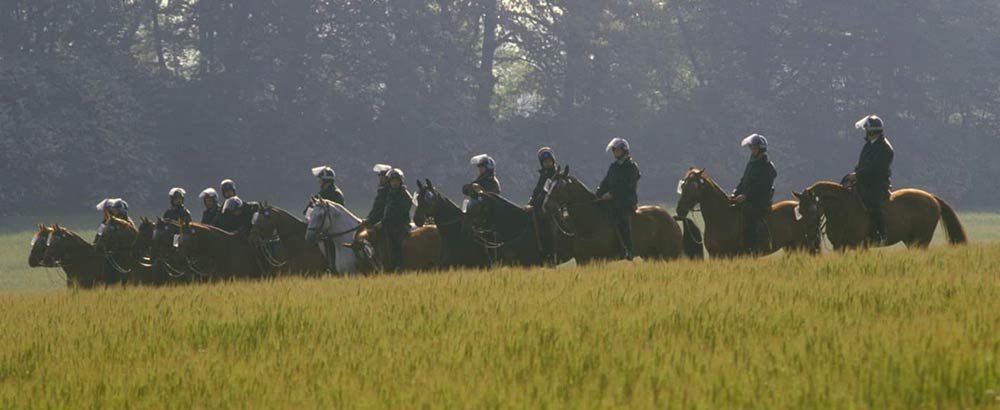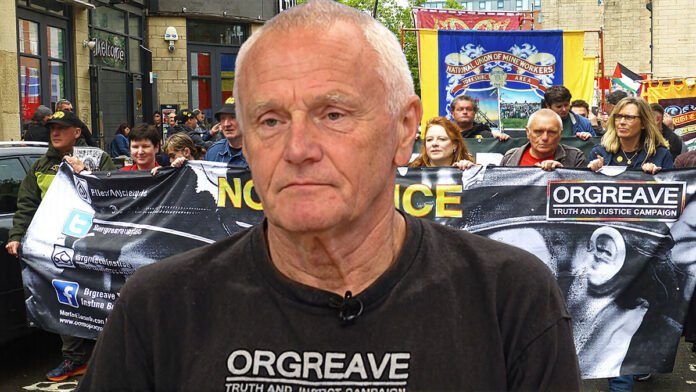Thatcher’s Bloody Reckoning: Why the Orgreave Inquiry Matters Now More Than Ever
The announcement of a national inquiry into the Battle of Orgreave arrives with the punctuality of British Rail in its dying days, decades after the wounds were inflicted and long after many of those who suffered have departed this world without ever seeing justice. Forty years of dust settling on the broken bones and shattered lives of striking miners, forty years of official silence deafening the roar of righteous anger. Forty years, yes, forty years for the British state to finally acknowledge what every decent person witnessed on their television screens that June day in 1984, that something monstrous had been done in their name at a coking plant in South Yorkshire.
John Dunn, a former miner whose face bears the etched map of a life spent fighting for dignity against the grinding gears of Thatcherite brutality, spoke on BBC Breakfast. His words, quiet, measured, yet carrying the weight of decades of struggle, painted a picture far grimmer than the sanitised version offered by the establishment. He, like so many others, knows that Orgreave wasn’t an isolated incident; it was a brutal, premeditated assault, a deliberate act of state violence, a chilling microcosm of the class war waged in 1984. And that war never ended; it simply changed shape, with the iron heel still grinding down on working-class lives, masked now by policy papers and polished PR.
Dunn spoke with the measured precision of a man who has learned that quiet truth-telling often proves more devastating than righteous fury. His words carried decades of accumulated knowledge that Orgreave was never an aberration, never a regrettable excess born of momentary chaos. It was, he knew, a carefully orchestrated demonstration of what happens to communities that dare resist their own economic execution.
Remember those images, seared into the collective memory: mounted police charging into crowds of miners as if recreating some medieval battlefield, batons rising and falling with metronomic precision, men who had spent their lives extracting the coal that powered the nation now bleeding on the ground for the crime of refusing to accept their own obsolescence. Men battered by the state for daring to defend their livelihoods and their communities. The mathematics of British justice has always been elegantly simple. Over one hundred injured, zero police officers charged.
Former Home Secretary Jack Straw’s admission of a “pattern of behaviour” ranks among the more grotesque euphemisms in a political lexicon already groaning under the weight of its own mendacity. A pattern of behaviour? One might as well describe the Blitz as an urban planning disagreement. This was systematic state violence deployed against working-class communities with the same calculated precision that Margaret Thatcher brought to dismantling Britain’s industrial base.
The Orgreave Truth and Justice Campaign deserves recognition not merely for its persistence but for its refusal to allow comfortable amnesia to settle over these events like Yorkshire coal dust. Their cautious celebration of the inquiry announcement reflects hard-won wisdom about the gap between official investigations and actual accountability. They understand, as we all should, that the British establishment has perfected the art of conducting inquiries that generate maximum publicity while producing minimum consequences.

There’s a pattern to these enquiries. The Hillsborough inquiry eventually delivered truth but only after decades of official lies had poisoned the wells of justice. The Chilcot Report on Iraq provided exhaustive detail about governmental deception while ensuring that no individual faced meaningful sanction for dragging Britain into an illegal war. These investigations serve a particular function in British public life; they allow the system to acknowledge past errors while guaranteeing that those responsible for current policies need fear no similar accountability.
The 1984 miners’ strike represented far more than an industrial dispute over pit closures. It constituted the last great battle between organised labour and unfettered capital, the final stand of communities that understood themselves as more than mere economic units to be discarded when profit margins demanded. Three-quarters of Britain’s miners walked out in a monumental act of collective defiance against a government determined to prove that There Was No Alternative to their vision of market fundamentalism.
Thatcher’s war against the miners, for war it was, complete with military-style tactics and strategic deception, aimed at more than destroying the National Union of Mineworkers. It sought to break the very notion that working people might legitimately resist capital’s demands, that communities might possess claims superior to shareholder returns. Orgreave became the visual metaphor for this broader campaign: the full weight of state power deployed against those who dared suggest that human dignity trumps economic efficiency.
Yet focusing exclusively on 1984 risks missing the broader historical pattern. The violence at Orgreave had predecessors in the General Strike of 1926, when the state mobilised middle-class volunteers to break working-class solidarity. It echoed through the Saltley Gate confrontations of 1972, when miners demonstrated their power before Thatcher perfected the techniques to crush it. The thread connects forward to the poll tax riots, the kettling of anti-globalisation protesters, and the systematic harassment of environmental activists deemed threats to corporate interests.
The Orgreave Truth and Justice Campaign, tireless in their pursuit of truth, deserve immense credit for their unwavering persistence. Their cautious elation at the inquiry announcement is entirely understandable. But let’s not be naive. Inquiries, as we’ve seen time and again – and as this very website has documented extensively (see our previous coverage of the Hillsborough Inquiry and the Chilcot Report on the Iraq War, Grooming Gangs), are often tools of obfuscation, carefully constructed to bury uncomfortable truths under mountains of bureaucratic paperwork. They are the modern equivalent of Roman circuses, designed to distract the populace while the real power plays continue behind closed doors.

This inquiry, if it possesses any value beyond theatrical catharsis, must grapple with these deeper currents. The question is not merely what happened at Orgreave, but why British establishments consistently resort to violence when their authority faces sustained challenge. The answer lies in recognising that such violence serves a pedagogical function, it teaches the rest of us what befalls those who step too far beyond acceptable bounds of dissent.
The neoliberal project that Thatcher launched required more than economic restructuring; it demanded psychological transformation. The British people needed to learn that collective action was futile, that solidarity was sentiment, that individual advancement through market participation offered the only realistic path to prosperity. Orgreave provided an essential lesson in this curriculum, demonstrating the consequences of refusing to embrace competitive individualism.
The inquiry’s value will ultimately depend on its willingness to examine these broader patterns rather than treating Orgreave as an isolated incident. If the investigation confines itself to determining exactly which police officers swung which batons on which specific dates, it will miss the systemic questions that make this history relevant to contemporary politics.
We need answers about how decisions to deploy such overwhelming force were made and by whom. We need understanding of the coordination between police forces, government ministers, and intelligence services that enabled such a comprehensive assault on civil liberties. We need recognition that the battle lines drawn at Orgreave continue to shape British politics today.
Most crucially, we need acknowledgement that the communities destroyed during the 1980s never recovered from the economic and social violence inflicted upon them. They stand abandoned, left in condemnation by a state that doesn’t care.
The inquiry must connect the dots between the immediate casualties at Orgreave and the generational trauma that followed pit closures across former industrial Britain. The deaths of despair, the endemic poverty, the collapse of social solidarity, these represent the real legacy of that decade’s assault on working-class Britain.
Support Independent Journalism Today
Our unwavering dedication is to provide you with unbiased news, diverse perspectives, and insightful opinions. We're on a mission to ensure that those in positions of power are held accountable for their actions, but we can't do it alone. Labour Heartlands is primarily funded by me, Paul Knaggs, and by the generous contributions of readers like you. Your donations keep us going and help us uphold the principles of independent journalism. Join us in our quest for truth, transparency, and accountability – donate today and be a part of our mission!
Like everyone else, we're facing challenges, and we need your help to stay online and continue providing crucial journalism. Every contribution, no matter how small, goes a long way in helping us thrive. By becoming one of our donors, you become a vital part of our mission to uncover the truth and uphold the values of democracy.
While we maintain our independence from political affiliations, we stand united against corruption, injustice, and the erosion of free speech, truth, and democracy. We believe in the power of accurate information in a democracy, and we consider facts non-negotiable.
Your support, no matter the amount, can make a significant impact. Together, we can make a difference and continue our journey toward a more informed and just society.
Thank you for supporting Labour Heartlands









